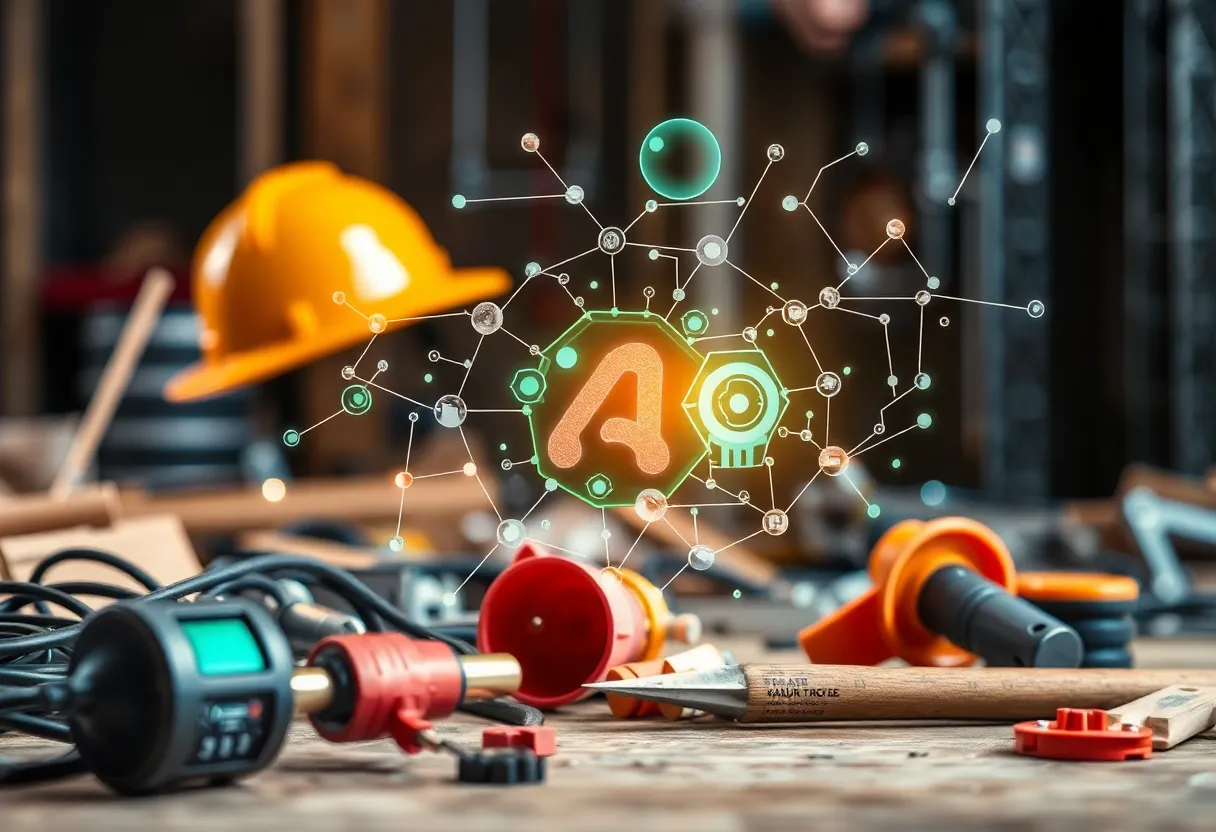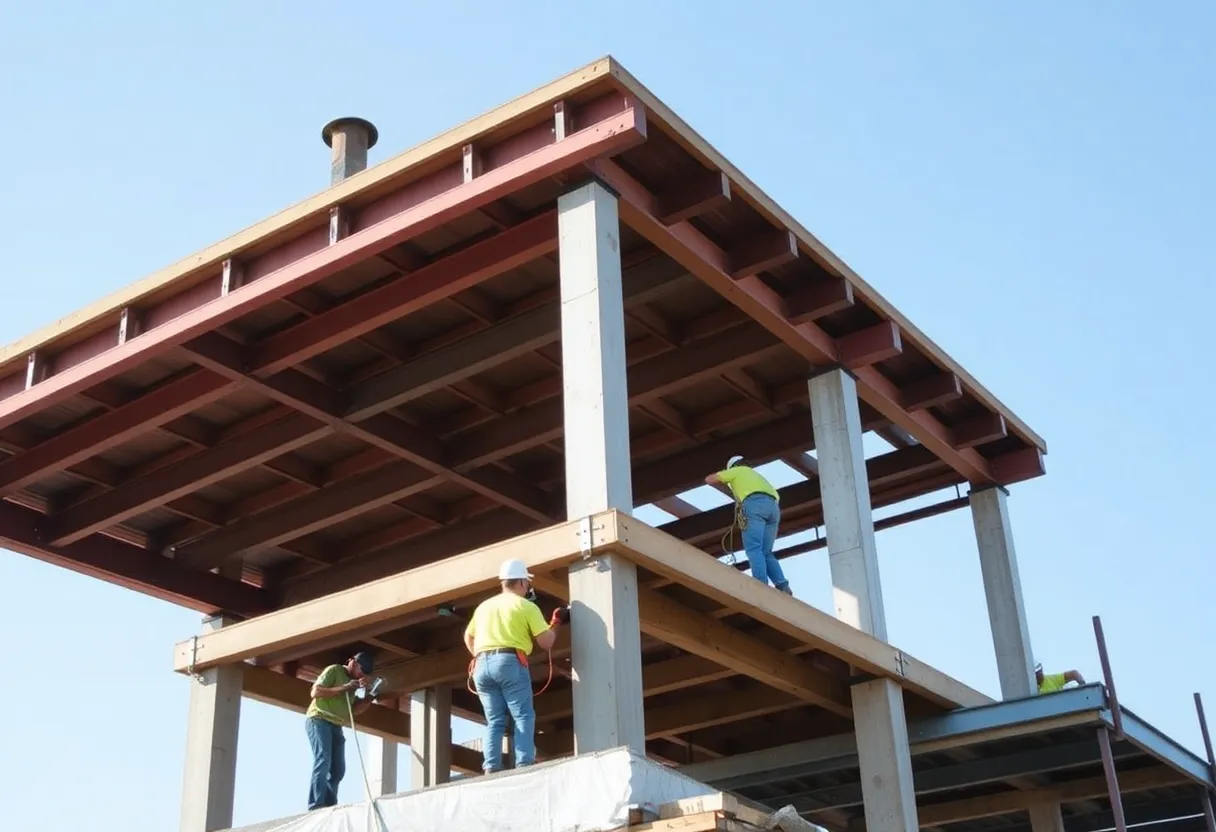News Summary
The construction industry is rapidly embracing artificial intelligence (AI) to improve efficiency and productivity. However, with its integration come significant risks, including the potential for flawed decision-making from inaccurate AI outputs. Experts emphasize the necessity of human oversight and caution against over-reliance on AI in crucial project decisions. To mitigate these risks, companies should implement robust AI policies, conduct thorough due diligence, and provide comprehensive training for employees. The careful and informed use of AI can lead to transformative benefits in the construction sector.
Risks and Best Practices for AI Use in Construction Industry
The construction industry is undergoing a significant transformation as the adoption of artificial intelligence (AI) continues to rise. While this emerging technology promises to enhance productivity and streamline processes, it also presents several risks that contractors and construction professionals must navigate carefully. Construction lawyers warn that reliance on AI outputs without proper oversight could lead to potentially costly mistakes.
Highlighting the Risks
One of the major concerns is the possibility of selecting the wrong contractor in bid competitions based on inaccurate AI data. Misinterpretations and inaccuracies in AI analysis can produce flawed decision-making processes that could impact project outcomes. The complexity of construction contracts, combined with the high-stakes nature of various decisions, heightens the potential for errors resulting from misleading AI interpretations.
As the industry increasingly integrates AI into project planning, companies are reminded that AI should not replace human judgment. The necessity of human oversight cannot be overstated, as inaccuracies can lead to significant financial setbacks. Fast-paced project environments may tempt firms to use unverified AI outputs, raising concerns about contractual violations and data security.
Best Practices for Implementation
To mitigate these risks, companies are advised to conduct thorough due diligence before adopting AI tools. Understanding the capabilities, security features, and limitations of these technologies is crucial. It’s essential to treat AI as a scalpel focused on addressing specific inefficiencies, not as a blanket solution for all problems in the construction workflow.
Implementing firm-wide AI policies can also help streamline the adoption process. These policies should include the use of only approved and secure AI tools. Establishing protocols requires organizations to verify AI outputs rigorously—a practice emphasized as “verify, verify, verify.” This comprehensive approach ensures that decision-makers are using reliable information during crucial project phases.
Training and Policies to Enhance AI Use
Along with robust policies, training professionals in the critical use of AI is vital. Employees must understand how to utilize AI effectively while recognizing its limitations. Proper training can help prevent misinterpretation of contract clauses and mitigate risks associated with biased outputs and “hallucinations” in AI algorithms.
Documentation plays a key role in maintaining accountability when using AI. A documented “defensible trail” is necessary to authenticate how AI-driven decisions were made, showcasing inputs, outputs, and the human oversight involved. Without this trail, justifying AI-driven choices in court—especially in cases involving sensitive data—can prove challenging.
Looking Ahead: AI’s Future in Construction
The potential for AI in the construction industry is expansive. Firms that successfully integrate AI-driven tools can experience faster project cycles, enhanced cost estimations, and improved safety measures. AI has the capability to process vast amounts of data, thereby improving project efficiencies and predicting outcomes with greater accuracy. Moreover, by automating repetitive tasks, AI helps significantly mitigate schedule delays and budget overruns.
As the construction industry seeks to adapt to rising demands and tightening margins, the integration of AI is expected to gain momentum. The market for AI in construction is predicted to grow remarkably, reaching an estimated $11.85 billion by 2029. As companies increasingly recognize the need for innovation, the responsible implementation of AI will be essential for long-term success and resilience in a rapidly evolving landscape.
Deeper Dive: News & Info About This Topic
Additional Resources
- Construction Dive: Risks and Best Practices for AI Use in Construction Industry
- Wikipedia: Artificial Intelligence
- For Construction Pros: Smarter Construction with AI
- Google Search: AI in Construction
- Oracle: AI in Construction
- Encyclopedia Britannica: Construction Industry
- Autodesk: AI in Construction
- Google Scholar: AI Construction Risks
- Aon: The AI Data Center Boom
- Google News: AI Construction Innovation
- TechTarget: Emerging Technologies in Construction
Author: Construction FL News
The FLORIDA STAFF WRITER represents the experienced team at constructionflnews.com, your go-to source for actionable local news and information in Florida and beyond. Specializing in "news you can use," we cover essential topics like product reviews for personal and business needs, local business directories, politics, real estate trends, neighborhood insights, and state news affecting the area—with deep expertise drawn from years of dedicated reporting and strong community input, including local press releases and business updates. We deliver top reporting on high-value events such as the Florida Build Expo, major infrastructure projects, and advancements in construction technology showcases. Our coverage extends to key organizations like the Associated Builders and Contractors of Florida and the Florida Home Builders Association, plus leading businesses in construction and legal services that power the local economy such as CMiC Global and Shutts & Bowen LLP. As part of the broader network, including constructioncanews.com, constructionnynews.com, and constructiontxnews.com, we provide comprehensive, credible insights into the dynamic construction landscape across multiple states.





